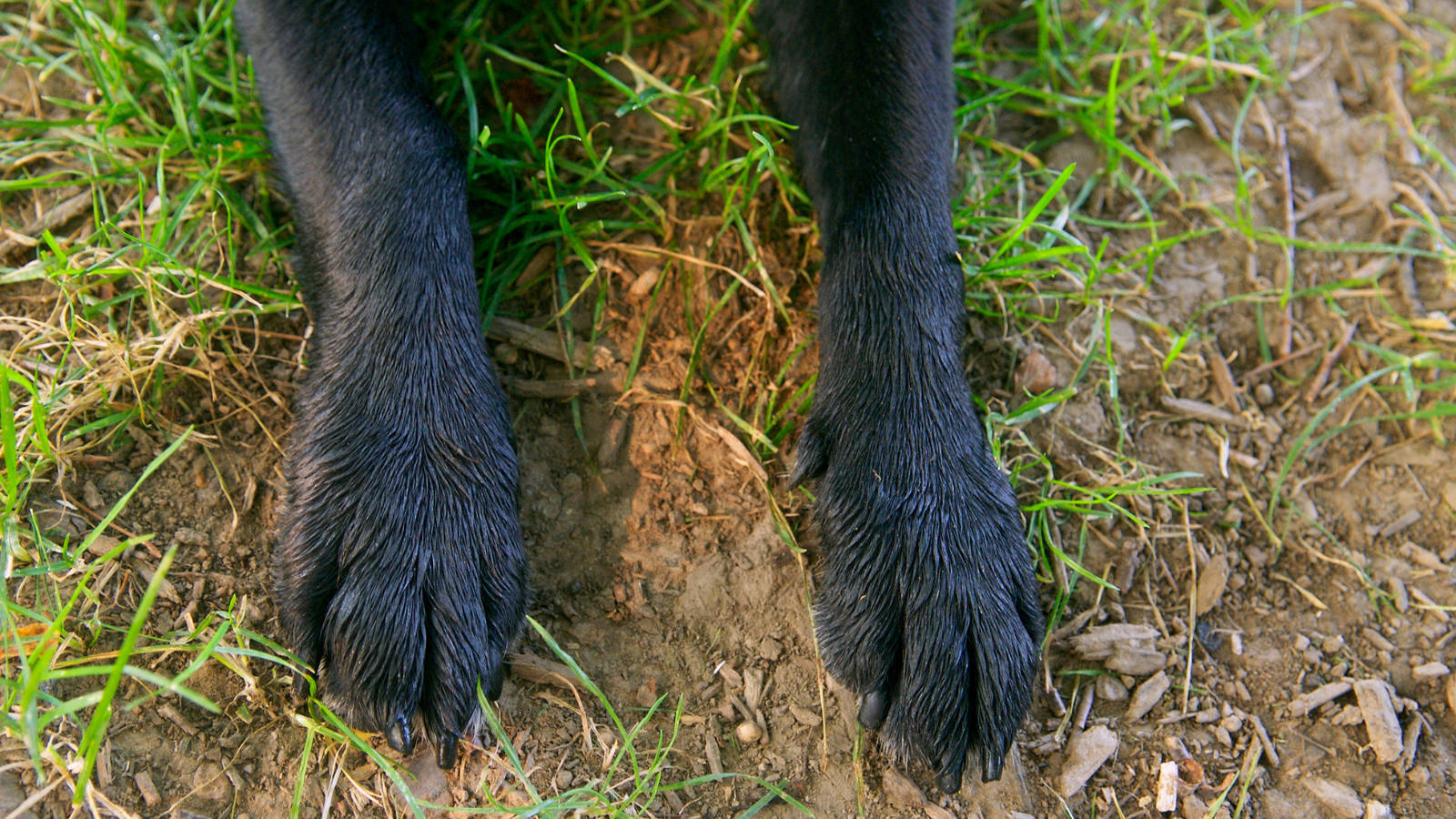7 Common Signs of Arthritis in Dogs

Implementing the right senior dog arthritis treatment is a top priority for pet owners as their faithful companions grow older. Arthritis is common with senior dogs, often causing discomfort and limiting physical activities they once enjoyed. Early detection of arthritis symptoms is the key to managing the condition effectively extending the mobility and happiness of your dog.
Let’s explore the early signs of arthritis in dogs and ways to support your senior dog, including the best supplements for arthritis management.
In this post, we’ll cover:
Recognizing Arthritis in Senior Dogs
Arthritis is characterized by inflammation and stiffness in the joints. The wear and tear on older dog’s joints can lead to discomfort and reduced mobility, making everyday activities like walking, climbing stairs, or even standing more challenging. Larger breeds are particularly susceptible to developing arthritis.
To recognize the early signs of arthritis in dogs, look for decreased activity, stiffness, limping, changes in behavior, (such as irritability) or a reluctance to play. You may notice your dog struggling to get up after resting or favoring limbs during movement.
Senior dog arthritis treatments are most effective when pet owners identify symptoms early and start the treatment plan soon.
Decreased Activity Level
One of the earliest signs of arthritis in dogs is a noticeable decline in their activity level. Joint pain and stiffness are uncomfortable for your dog and lead to decreased interest in activities they once enjoyed like running, playing, or long walks. Arthritic dogs will avoid stairs, jumping onto furniture, or climbing into the car.
Keep track of any changes in your dog’s willingness to move. Check to see if your dog favors one leg or struggles to maintain their usual pace during walks.
To track your dog’s activity levels:
- Create a journal to track patterns in reduced activity. Check out bullet journal ideas online for tracking pet health.
- Use a fitness tracker designed for pets, if available, to monitor daily movement.
- Pay attention to small behaviors, like avoiding playtime or lagging on walks.
Tracking these shifts early allows for early intervention including treatment plans and supplements for senior dogs with arthritis.
Stiffness and Difficulty Moving
Stiffness and difficulty moving are especially noticeable in the morning when your dog first gets up or after periods of rest. Your dog may take longer to stretch or to start walking. Arthritis in the back legs often leads to difficulties when a dog tries to sit, stand, or climb stairs.
Observe your dog’s gait. Dogs with arthritis walk more slowly, take shorter strides, and can appear unsteady on their feet.
Monitor stiffness and mobility issues by:
- Watching your dog closely in the morning or after naps
- Checking for posture changes or a reluctance to sit or lie down.
- Look for signs of discomfort such as licking or chewing at their back legs or joints.
These early signs will help you recognize the need for supplements or senior dog arthritis treatments.
Limping or Favoring Limbs
As arthritis progresses, joint pain and inflammation can cause dogs to favor certain limbs to reduce discomfort. The severity of limping varies. Some dogs may have a mild limp that comes and goes, others may experience pronounced difficulties. As arthritis advances, the limp may worsen.
Determine arthritis-related limping with the following questions:
- Does the limp worsen after exercise or improve after rest?
- Are there visible signs of injury, such as swelling or cuts, to rule out other causes?
- Does limping occur consistently after activity or during colder weather?
It’s important to distinguish arthritis-related limping from injuries or acute conditions. Limping caused by arthritis typically develops gradually over weeks or months. Limping from injuries like sprains or cuts is more sudden and localized. Arthritis-related limping may also shift between limbs as dogs compensate for joint pain in multiple areas.
Behavioral Changes and Irritability
Changes in temperament can seem subtle but are significant indicators of underlying pain. A typically friendly dog may start growling or snapping when handled near the hips, back legs, or other affected areas. They may prefer areas away from family activity to rest.
Look for these changes:
- How does your dog respond to touch or handling in specific areas?
- Does your dog avoid interaction, moving away when approached?
- Is your dog less enthusiastic about play or interaction?
These behavioral changes are early signs of arthritis in dogs.
What are the best supplements for senior dogs with arthritis?
As pet parents, it’s tough to see our faithful companions slow down due to arthritis. The good news is that with supplements, you can ease your senior dog’s discomfort and bring back some of their youthful energy. Supplements are a natural and effective way to manage arthritis symptoms and improve your dog’s mobility, allowing them to enjoy life to the fullest.
Glucosamine and chondroitin are effective supplements for senior dogs with arthritis. These ingredients work together to rebuild and maintain healthy cartilage, making it easier for your dog to move without pain. Omega-3 fatty acids in fish oil help reduce joint inflammation and promote long-term relief. Other helpful supplements include MSM (methylsulfonylmethane) for inflammation and turmeric for its natural pain-relieving properties.
It’s important to choose veterinarian-recommended products designed specifically for dogs. Start with the recommended dose based on your dog’s size, monitor progress, and remember to check in with your vet to ensure the supplement plan meets your dog’s needs.
Helping Your Senior Dog Live Comfortably with Arthritis
Arthritis doesn’t have to define your senior dog’s golden years. Early intervention including senior dog arthritis treatments can make a huge difference in managing symptoms and improving your dog’s quality of life.
At
Chipman Road Animal Clinic, we specialize in compassionate care tailored to senior dogs. Our team proudly serves pet owners in Lee’s Summit and the surrounding areas, offering expert guidance on arthritis management, supplements, and treatment plans. For more information,
click here or call
816-524-1886.
Contact Us
Chipman Road Animal Clinic
211 NW Chipman Rd
Lee's Summit, MO 64063
Phone: 816-524-1886
Fax: 816-524-7523
Office Hours
Monday: 7am-6pm
Tuesday: 7am-6pm
Wednesday: 7am-6pm
Thursday: 7am-6pm
Friday: 7am-6pm
Saturday: 8am-12pm
Sunday: Closed
Doctor Hours
Monday: 8am-6pm
Tuesday: 8am-6pm
Wednesday: 8am-6pm
Thursday: 8am-6pm
Friday: 8am-6pm
Saturday: 8am-12pm
Sunday: Closed
For after-hour emergencies, please contact one of our recommended partners:
MO: Blue Pearl Animal Hospital - Open evenings and over night, call (816) 554-4990
KS: Mission Veterinary and Emergency - Open 24 hours, call (913) 722-5566
All Rights Reserved | Website Design by Digital Marketing Inc | Copyright

